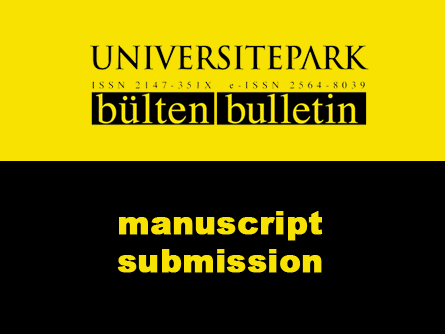An Overview of the Problems of Visual Arts Classes Within the Turkish Education System and Suggested Solutions
pp. 7-18 | Published Online: December 2017 | DOI: 10.22521/unibulletin.2017.62.1
A. Cem Ozal
![]() Full text PDF |
2501 |
2169
Full text PDF |
2501 |
2169
Abstract
System is a structure that operates within the relevant field with minimum error enabling attainment of an end-product as intended. It is only natural to encounter disruptions or deviations in human-induced systems. Nevertheless, any system targeting the training of individuals is a sensitive structure that should be designed meticulously since it is a long-term effort where consequences may significantly and directly affect the lives of the individuals within the system. The primary goals of the Turkish education system are clearly stated in the Basic Law of National Education. Although there are several formative studies such as curriculum design or system amendments within the system in compliance with these main goals, there are also certain obstacles or factors that adversely affect the achievement of these goals. This current study aims to identify and reveal the key problems that are preventing the achievement of the intended goals for the Visual Arts courses within the Turkish education system. Within this framework, identified problems are discussed from the perspective of decisions taken at the National Education Councils on teaching hours and permanent staff application, lack of physical spaces such as workshops and classrooms, teacher training, and employment, followed by a set of recommendations for possible solutions.
Keywords: visual arts education, arts education, arts
ReferencesAltinkurt, L. (2005). Development of art education in Turkey. Dumlupinar University Journal of Social Sciences, 12, 125-136.
Altinkurt, Y., & Aysel, I. (2016). Yeni Turkiye ve egitim: Egitime dikkatli bakmak. In I. Kaya (Ed.), Yeni Turkiye’nin toplumsal yapisi [Social structure of New Turkey], (pp. 13-40). Ankara: Imge.
Etike, S. (1991). Secondary school art education and art teacher training in the historical development of Turkish art education: 1923-1950 (Unpublished Doctoral dissertation). Ankara University, Ankara.
Gencaydın, Z. (2002). Sanat egitimcisi yetistirmede G.E.F. resim-is bolumunun yeri ve bugunku durumu. Gazi Universitesi 1. Sanat Egitimi Sempozyumu Kitabı, 29, Ankara.
Ildanlı, D. (2010). The investigation of proficiency of weekly course hours at visual arts lesson at the second degree of primary schools (Unpublished Master’s thesis). Selcuk University, Konya.
Ilhan, A. C. (2003). Training programs for classroom teachers and art education. Ankara University Journal of Faculty of Educational Sciences, 36, 1-2, 13-24.
Ilhan, A. C. (2005). Türkiye Cumhuriyeti ilkogretim okullarında plastik sanatlar egitimi. In V. Turk kulturu kongresi cumhuriyetten gunumuze turk kulturunun dunu, bugunu ve gelecegi (17-21 aralik) plastik sanatlar cilt-xii [Turkish culture congress the past, today and the future of turkish culture from the republic to today], Ankara: Atatürk Kültür Merkezi Başkanlığı.
Kahraman, D. (2014). Relevant views and suggestions for problems faced by classroom teachers in the implementation of the visual arts curriculum. Abant İzzet Baysal University Journal of Faculty of Education, 14(1), 221-240.
Kirisoglu, O. T. (1991). Sanatta egitim: Gormek, anlamak, yaratmak [Education at art: see, comprehend, create]. Ankara: Demircioglu.
Kirisoglu, O. T., & Stokrocki, M. (1997). Orta ogretim sanat egitimi [Art education on secondary education]. Ankara: YOK/Dunya Bankası MEGEP.
Kose, C., & Barkul, O. (2012). İlkogretim yapılarında tip proje uygulama sorunları uzerine bir inceleme [A study on the problems of type project implementation in primary education]. Yildiz Technical University Faculty of Architecture E-Journal, 7(2), 94-102.
MoNE, (1998). İlkögretim yapıları el kitabı [Primary School Construction Manual]. Ankara. Milli Eğitim Bakanlığı.
MoNE, (2010).https://ttkb.meb.gov.tr/meb_iys_dosyalar/2017_09/29170222_18_sura.pdf on 11.10.2017.
MoNE, (2014). 19. Milli egitim sura kararları. http://www.meb.gov.tr/19-mill-egitim-srasi-sona-erdi/haber/7594/tr on 01.10.2017.
MoNE, (2015). Egitim yapıları asgari tasarım standartları kılavuzu [Minimum design standards guide of educational buildings]. Ankara. Milli Eğitim Bakanlığı.
MoNE, (2017). Ortaokul 5. sınıflarda yabancı dil agırlıklı egitim uygulaması. http://tegm.meb.gov.tr/meb_iys_dosyalar/2017_09/15180821_5._sinif_yabanci_dil_talimat_yazisi.pdf on 10.10.2017.
Official Gazette, Republic of Turkey, (1999) Milli Eğitim Bakanlığına bağlı okul ve kurumların yönetici ve öğretmenlerinin norm kadrolarına ilişkin yönetmelik. No. 99/13184, Kabul Tarihi: 10/08/1999.
Official Gazette, Republic of Turkey, (2012). Ilkogretim ve egitim kanunu ile bazı kanunlarda degisiklik yapılmasına dair kanun.
Ortak, S. (2004). The effects of foreign expert reports on Ataturk period education policies (Unpublished Doctoral thesis). Ataturk Universiy, Erzurum.
Ozsoy, V. (1996). A brief look at the history of art education in Turkey. Gazi University Journal of Gazi Educational Faculty, 16(1), 109-121.
Ozsoy, V. (2016). Turkiye ve Amerika Birlesik Devletleri’nde sanat egitimi ve sanat ogretmeni yetistirme yontemlerinin bir karsılastırması [A comparison of art education and art teaching methods in Turkey and the United States]. Gorsel Sanatlar Egitimi Makaleler. Ankara: Pegem Akademi.
Recep, E. (2013). Investigation of the effects of classroom teachers and in-field teachers to the visual arts course in primary first stage (Unpublished Master’s thesis). Gazi University, Ankara.
Sahin, S. (1995). History of art education in Turkey (Unpublished Doctoral thesis). Marmara University, İstanbul.
Telli, H. (1990). Turkiye’de resim-is ogretimine genel bir bakis, ortaogretim kurumlarında resim-is ogretimi ve sorunları [A general look at arts & crafts education in Turkey, arts & crafts education and problems in secondary education institutions]. Ankara: T.E.D.
UNIBULLETIN News!
► New issue coming soon! (Volume 13 Issue 1, 2024)
► Call for Papers
UNIBULLETIN is calling for submissions. Authors are invited to submit papers from the all fields of the Education (General) and Social Sciences (General) in the international context. All submissions should be presented only in English.
